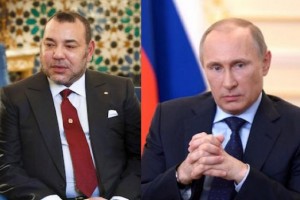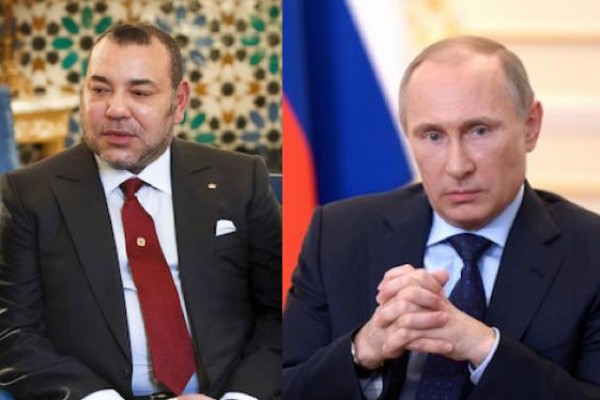Times of India Blogs
Rudroneel Ghosh in Talking Turkey

Apropos my previous blog, I had mentioned how Russian intervention in Syria has created conditions for a negotiation process to end the five-year-old Syrian civil war. But given that the latter along with the rise of the Islamic State (IS) terror group has had a spill-over effect on the larger Middle East, North Africa and Europe regions, the recent visit of Morocco’s King Mohammed VI to Russia is significant.
There are two key aspects to this visit. First, Morocco has been earning a huge amount of international praise for carrying out low-key, intelligence-based security operations against groups and modules affiliated to IS. Morocco’s efforts in this direction have seen the North African nation emerge as an island of security in what has turned out to be a volatile region. If this weren’t significant enough, Morocco has been aiding foreign countries in their counter-terrorism operations. It’s well known by now that in the aftermath of last November’s terror attack in Paris, Morocco provided crucial intelligence inputs to the French authorities that led to the extermination of the masterminds of that terror plot.
Earlier Morocco had played a vital role in the multi-party security operations to push back the radical Islamists who had taken over vast parts of Mali. Add to this Morocco’s efforts in promoting moderate Islam through the training of foreign imams to counter the global spread of jihadism, and it’s safe to say that Morocco has emerged as a bulwark against extremism and a proponent of international stability and security.
Seen in this light, there’s much scope for collaboration between Rabat and Moscow. It’s a fact that Russia faces its own brand of home-grown jihadi threats. Plus, many Russian nationals have gone on to fight for IS. These Russian IS fighters are a huge concern for Moscow as they can return to their home country to wreak havoc. Given Morocco’s specialised insights and inputs on the security situation in the MENA, Sahara and Sahel regions, Rabat and Moscow can cooperate effectively to tackle terrorism. In this regard, during King Mohammed’s visit to Moscow, Morocco and Russia inked a joint declaration on the fight against international terrorism.
Another reason why the visit is an important one is because it comes at a time when the UN Security Council will soon be discussing the renewal of the United Nations Mission for the Referendum in Western Sahara (MINURSO). I have written about the Moroccan Sahara issue in these blogs before. In short, a Sahrawi separatist group called the Polisario Front has for decades challenged Morocco’s historical sovereignty over the Sahara. In this endeavour, the Polisario has been supported by several foreign players, principally Algeria. The Polisario and its backers insist on a referendum even though the separatist group has never allowed a census and enumeration exercise for the so-called Sahrawi refugees in its camps.
Plus, the Polisario stands accused of diverting humanitarian aid meant for its camps. Against this backdrop, Morocco, for its part, has offered a credible autonomy plan for the Sahara. Yet, recent events such as UN secretary general Ban Ki-moon’s description of the Moroccan position in the Sahara as “occupation” are disconcerting. Hence, it is hoped that Morocco and Russia can coordinate their positions on the Moroccan Sahara issue at the UN and prevent any efforts to subvert previous UN resolutions on the dispute. After all, adherence to UN mechanisms is precisely what Moscow has been calling for. In fact, over the last few years Russian President Vladimir Putin has repeatedly called out western powers for failing to uphold UN mechanisms on trade, security, and other key areas.
Seen in this context, the Morocco-Russia partnership could blossom into a key strategic bilateral relationship within the current global architecture.
DISCLAIMER : Views expressed above are the author’s own.
Rudroneel Ghosh
I am a Delhi-based journalist working for the Edit Page of The Times of India.







